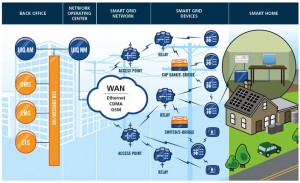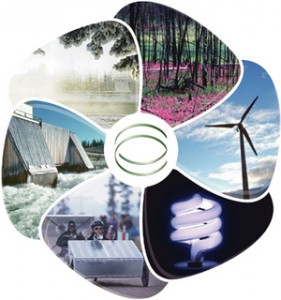Search Results for Tag: renewable
Loch Ness meets green power
 Author: Kerstin Schnatz
Author: Kerstin Schnatz
Scotland is one of the few nations in the world to have a Minister of Climate Change. We met Paul Weelhouse today at the World Climate Summit 2012 where he discussed the global energy mix of the future. While Qatar, represented by it’s Minister of Energy and Industry, counts heavily on natural gas, Scotland takes a differnt turn. Even though Scotland still is the biggest producer of oil and gas in the European Union and wants to keep this role, the country aims to run on 100% renewables by 2020. To reach this ambitious goal, lots of money and manpower are invested already. Even the mystic sea-monster Nessie takes part in the Scottish developement – but hear and see for yourself.
Paul Wheelhouse, Scottish Minister for Environment an Climate Change @WCS from DW_Global Ideas on Vimeo.
Ikea Invests in More Renewable Energy

Ikea, which is the biggest home furnishings chain in the world, has announced it’s making a big commitment to clean energy. The company has purchased a big wind farm in Scotland and plans to install almost 40,000 solar panels on its stores in the United Kingdom.
Ikea bought the 12.3 megawatt wind farm in Scotland as a way to promote clean energy use in its stores and facilities and it looks like that plan will work: the energy from that wind farm could generate 30% of the energy used by all of Ikea’s stores in the UK. And the solar panels will produce another 5% of the stores’ energy. Best of all, Ikea will end up saving money in the long-run by cutting down on all those energy bills!
Japan Turning to Renewables

Energy in Japan has become a very important issues since the nuclear crisis at Fukushima began. Japanese Prime Minister Naoto Kan said on Tuesday that the country will now shift its energy focus away from nuclear power and towards renewable sources. Currently, Japan’s energy plan sees the country getting 50% of its electricity from nuclear power and about 20% from renewable by the year 2030. But Kan said that’s what he wants to change, especially in light of Fukushima, and wind power will play a big role.
Japan will start supporting biomass and solar power, too. Plus, Japan is home to tons of hot springs, and they represent enormous untapped potential for geothermal energy. In fact, Japan could even produce enough geothermal power to export to other countries in Asia.
We know Japan has gone back to the drawing board since the Fukushima crisis, and Germany, too, is reexamining its commitment to nuclear power. Do you think we’ll see this trend in other parts of the world too? Or is nuclear power too entrenched into the energy system where you live?
Renewable Future
The UN’s Intergovernmental Panel on Climate Change (IPCC) came out with a report recently that said renewable energy could make up 77% of the entire world’s energy needs by the year 2050. Yes, 77%! If that happened, we would slash one-third of the world’s greenhouse gas emissions and hold global temperatures under 2 degrees celsius.
The study included a series of renewable energy forms that could contribute to a very green future: solar, hydropower, wind, geothermal, and bioenergy. So what’s the catch? Well, of course, it all depends on politics and policy. According to the study, each country has to fight political obstacles and complications to make sure environmentalism is a top priority.
What are the obstacles and complications in your country that are preventing good climate policy?
Smart Grids

As more and more countries start to integrate renewable energy into the mix, the need for smart grids is also growing. What are smart grids? They’re a type of electricity network controlled by digital technology–and that network runs straight from a power plant right into your home. The idea is to make the flow of electricity more reliable and efficient AND be able to better integrate alternative energy sources, like wind power, solar energy, etc.
One of the most important parts of smart grids is actually the intelligence aspect. The technology allows energy consumers to actually track how much energy they use, and when. So that means, you can actually keep track of your own energy ‘behavior.’ It sounds a bit confusing, but you can read more about how smart grids work on the EU’s dedicated website.
There is one catch, though. Privacy protection advocates are worried that your energy information–how much electricity you use, when you use the most, etc.–might not be secure with smart grids. Basically, they believe smart grids could give big energy companies access to information about you that they can store and use for other purposes.
What do you think? Do you think privacy is a big concern when it comes to smart grids? Why?









Feedback